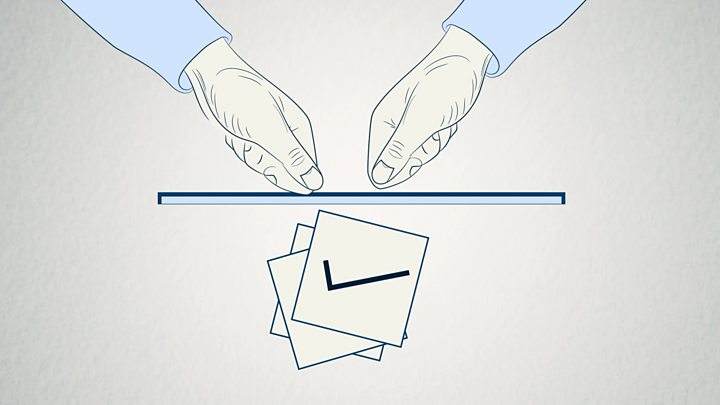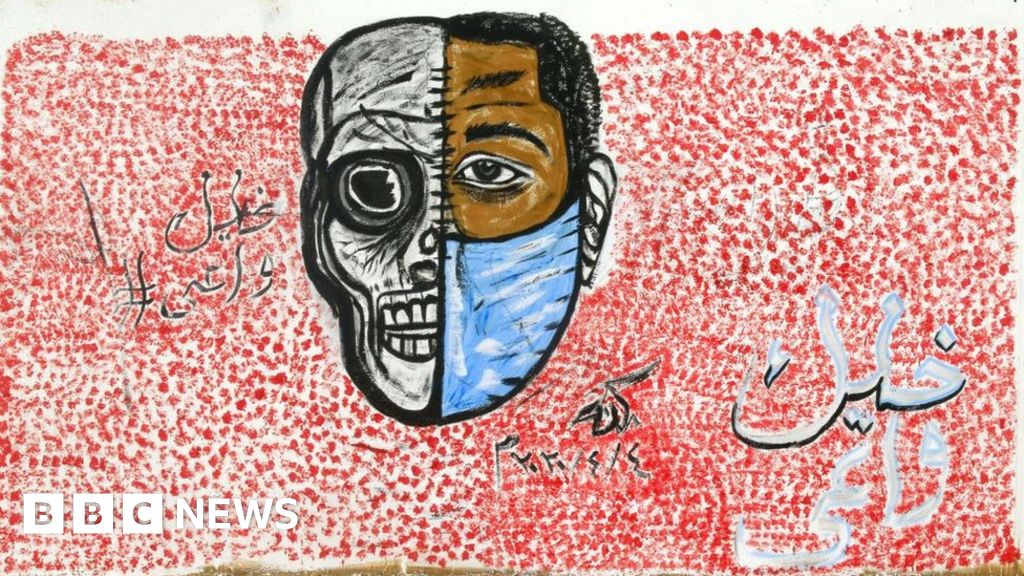Image copyright
Getty Images
In our series of Letters from Africa, Sudanese journalist Zeinab Mohammed Salih writes that the government which took power after the overthrow of long-serving ruler Omar al-Bashir has failed to provide leadership during the coronavirus crisis.
“We managed to get rid of Omar al-Bashir. How come we cannot get hold of this tiny coronavirus?” said Akram al-Tom, the Sudanese health minister, amid the rapid rise in Covid-19 cases in western Europe and the US in March.
With Sudan now having the highest number of cases (more than 2,000) and deaths (around 100) in East Africa, many people are increasingly asking the question.
But Mr Tom is ducking the media.
The Ministry of Health has cancelled all press conferences – to abide by social-distancing rules – though it is unclear why it cannot hold them online.
Newspapers stop printing
Social distancing is not something that Prime Minister Abdalla Hamdok and an entourage of ministers put into practice when they were filmed at the airport in the capital, Khartoum, receiving the body of Defence Minister Gamal Omer following his sudden death in South Sudan in late March.
Image copyright
Getty Images
Sudan’s Defence Minister Gamal Omer died of a heart attack aged 59
They also ignored social distancing at the funeral home, despite a warning by neighbours about the health risk the gathering posed.
Mr Tom does appear on television from time to time, but only to read a pre-recorded statement on the latest number of Covid-19 cases and casualties.
And news has been in short supply because newspapers affected by a lack of sales because of lockdown restrictions have stopped printing, making content available only online.
Image copyright
Getty Images
The lockdown has had a devastating impact on the economy
This means most Sudanese will not have access to them as internet penetration is low here – only 26%, according to some estimates.
It has left many wondering whether the government – an uneasy mixture of army generals and civilians – can be trusted.
BBC
The security forces, still wield enormous influence, and have shown little sign of embracing human rights”
Earlier this month the internet was shut for two days in eastern Kessala state after an outbreak of ethnic clashes which left about 10 people dead.
Although the shutdown may have been an attempt to prevent social media being used to inflame tensions, it raised concern that the government could end up suppressing the media just like the ousted regime.
The security forces, after all, still wield enormous influence – and have shown little sign of embracing human rights and democracy.
‘Migrant workers fled quarantine centres’
After the nationwide lockdown came into force in April, police allegedly beat up and arrested doctors – including the head of the biggest maternity hospital in Sudan – as they were heading to work.
This was despite the fact that the doctors were carrying travel permits. Mr Tom eventually stepped in, and ordered their release.
Coronavirus in Africa:

Media playback is unsupported on your device
Many believe that the virus was brought to Sudan by the hundreds of Sudanese migrants who returned from Egypt and the United Arab Emirates in March because of the outbreak in those countries.
The government put them in quarantine centres, but many left prematurely, complaining about poor living conditions.
And students returning from China’s Wuhan city – where the virus was first detected – protested at the airport when the government wanted to put them into quarantine.
The government agreed to let the students go home. Many saw this as a sign that the civilian component of the government – which is sharing power with the army generals who ousted Bashir following mass protests against his rule – was weak.
Image copyright
Getty Images
Prime Minister Abdalla Hamdok (C) is an economist
Many people, especially the elderly, have been dying of various illnesses in the capital, Khartoum, because dozens of health centres – including hospitals – shut after the outbreak of coronavirus in March.
Many doctors refused to work, complaining about a lack of protective equipment.
Inflation reaches 100%
The Ministry of Health announced about two weeks agothat 30 health facilities in Khartoum had reopened. However, some remain shut.
The government has set aside two hospitals in Khartoum – which has a population of about 10 million – exclusively for Covid-19 patients.
Image copyright
ASHRAF SHAZLY
Most Sudanese are Muslims who were marking Ramadan until last week
Sudan has not only been experiencing a health crisis – but also an economic crisis.
Inflation has topped 100%, making it extremely difficult for millions of people to survive.
Their plight has been worsened by the fact that the lockdown has left them without an income and, to the disappointment of many, the prime minister and finance minister have not once appeared in public to sympathise with them, let alone offer financial help.
Many see this as a failure of leadership – something they had not expected from people who carried the hopes of the revolutionary movement into government following Bashir’s overthrow in April 2019.
More Letters from Africa:
Follow us on Twitter @BBCAfrica, on Facebook at BBC Africa or on Instagram at bbcafrica

